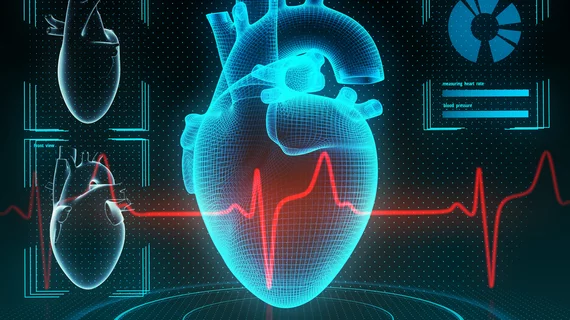Applying AI to ECG data helps gauge patients’ ‘physiologic age’
A study funded by the Mayo Clinic and published in Circulation: Arrhythmia and Electrophysiology this week suggests AI could be successfully applied to electrocardiogram (ECG) data to measure a person’s overall health status.
Mayo Clinic’s Suraj Kapa, MD, and colleagues in Minnesota leveraged ECG data from nearly 500,000 patients to train a convolutional neural network to recognize similarities between input and output data, hypothesizing the AI could learn enough from the those differences to calculate individual patients’ health profiles. Kapa et al. then tested the neural network for accuracy with data from an additional 275,000 patients by predicting the output when only provided input data.
The authors’ hope was that their neural network would determine a patient’s “physiologic age”—a measure of overall body function and health status that’s distinct from chronological age. The AI estimated patients’ chronological age as higher if they’d experienced adverse events like MI, low ejection fraction or coronary artery disease, and estimated their age as lower if they’d experienced no or few adverse events.
“While physicians already consider whether a patients ‘appears [their] stated age’ as part of their baseline physical examination, the ability to more objectively and consistently assess this may impact healthcare on multiple levels,” Kapa said in a release. “Being able to more accurately assess overall health status may help doctors determine which patients they should examine further to determine if there are asymptomatic or currently silent diseases that could benefit from early diagnosis and intervention.”
Ultimately, by the time the study wrapped, the team’s AI was determining patients’ gender with 90% accuracy and their chronological age group with 72% accuracy.
“This evidence—that we might be gleaning some sort of ‘physiologic age’—was certainly both surprising and exciting for its potential role in future outcomes research, and may foster a new area of science where we seek to better understand the biologic underpinnings of such a finding,” Kapa said.
He said that since the 750,000 patients included in he and his team’s study were all registered patients who underwent ECGs for varying indications, their findings will need to be validated in a cohort of people who are overtly healthy.

